>clocking 2500K - 16GB memory - GPU - or complete upgrade?<
You have to choose the upgrade path that suits you - both wallet and peace of mind.
But as an example i was in exactly the same position as you 3 months ago. I upgraded my 24" Dell Ultrasharps for 2 x 27" Dell US 1440p and had a 2500K clocked @ ~4.8GHz 8Gb memory and an R9 280x and thought i had the perfect reason to finally upgrade and play with Ryzen.
But i decided to experiment with a new GPU and an extra 8Gb to see what the boost would be like - purely as an experiment (the enthusiast in me wishes i hadn't!).
As i play games at 1440p i plugged in a GTX 1070 and knew ideally i needed to retain as much of my clock as possible to reduce any bottlenecking my CPU may cause the GTX 1070 (don't worry about this - it's a none issue as you'll be none the wiser of lost FPS). So i swapped out my 2 sticks of 4Gb for 2 sticks of 8GB - to try and retain my clock but i still found the memory controller was p*ssed and had to drop to 4.5GHz (no loss).
But if you go for a moderate clock of 4/4.2GHz - having all 4 slots filled 'shouldn't' be an issue (no guarantees of course - but i experimented with mine and it clocked to 4.5GHz even with 4 slots filled - but was only a brief period so not conclusive).
Oddly, the only potential pitfall i see is the BIOS upgrade on the MSI P67 MoBo as you will probably need to flash it to the latest release to get the GTX 1070 to work. The latest BIOS adds better PCIE compatibility which you need - trouble is is the Ivybridge and ME 8 update is also included within the update and a lot of users have bricked their boards updating to this BIOS
I put this down to user error (not flashing within the BIOS) as i've flashed 2 motherboards and not had any issues using the BIOS and USB stick. And to save me typing it out again i did a similar post in another thread that reads as below:
Unfortunately, this particular BIOS update has been known to cause issues - but, again, i was fine with the two MSI p67 board I updated. And suspect a majority of failures was user error or not using the optimum environment/interface for flashing the BIOS.
Interestingly, the MSI warning is different to what i encountered months ago. When i flashed the motherboard, it really stressed to only flash the board if you needed to and only advised using the USB pen - now they state to ONLY use a USB pen. See below:
*Please download and execute the file in USB pen drive only.
System will restart several times to update ME firmware after updated system BIOS. Please DO NOT remove the USB pen drive until ME update sucessfully.
This leads me to believe that users were flashing via windows utilities and was probably a direct cause of so many bricks.
If flashing through the BIOS environment was a known problem too they would have it splashed all over their page - and would either pull the BIOS or just state avoid unless updating to ivybridge.
If you do decide to flash - format a USB pen drive using FAT 32 and install just the BIOS to the drive. Then use the BIOS utility to flash the drive using a USB 2 port (NOT USB 3) and follow on screen prompts.
And follow the MSI instructions to the letter.
I mention the above not to put you off - but to make you aware that you will need to take care to flash your motherboard in the BIOS - no Window flashing utilities.
Again - clocking is easy, and the upgrade path is cheap - but do what's right for you. A new build is fun just for the hell of it too!



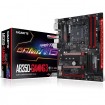
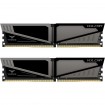
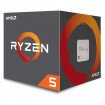
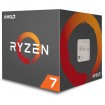
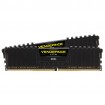
 )
) .
.